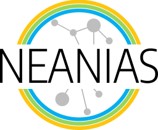The whitepaper "NEANIAS Best practices for interoperability and reusebility and reuse" has been produced by the NEANIAS project.
The objective of this whitepaper is to report on the guidelines and best practices adopted to design, release and improve the level of FAIR (Findability, Accessibility, Interoperability, and Reuse) of digital resources made available as part of the WP6 activities.
This document leverages on the valuable work and experience of technical partners as well as on the large availability of existing standards, specifications and implementations of FAIR services and validation tools.
The best practices and guidelines adopted in NEANIAS for FAIR service development and improvement can be summarized (not exhaustive list):
- To increase the awareness and promote the use of existing FAIR services and the development of new FAIR services
- To encourage the setup of team with cross-domain skills to cover scientific, management, ICT, legal and all needed expertise to achieve the desired level of maturity for the services including Technology Readiness Level, FAIRness Level, reliability, cloud-ready level, ...
- To encourage the connection with FAIR experts
- To encourage the accurate design and implementation of FAIR- / EOSC-ready services, by addressing and considering
- High modularity of micro-services to support the re-use of the component
- Review of existing services in the EOSC marketplace to identify reusable service components e.g. integration of EOSC AAI, logging and accounting, data sharing, …
- Use of existing and/or definition of metadata schemas
- to support resources discovery (minimum)
- to enable and improve service interoperability (rich)
- To support access to digital resources, including the management of restrictions, access controls, license and citations
- To encourage the adoption of data curation and long term data preservation, including Permanent Identifier (PID) and Digital Object Identifier (DOI)
- To encourage the adoption of standards such as but not limited to
- Data formats (nc, Cloud Optimized Geotiff, jp2, …)
- OGC services (OpenSearch, Spatio Temporal Asset Catalogue, Web Map Service, Web Coverage Service, Web Processing Services, …)
- Metadata (INSPIRE, ISO, …)
- To encourage the adoption of REST API to support machine-to-machine interfaces
- To encourage the adoption of and contribution to open-source software to evolve and enhance existing services
- To encourage the adoption of validation tools (applicable to both new and existing services) to test
- Service interoperability
- Data / metadata validation (DMP tools)
- To encourage the adoption of Continuous Integration / Continuous Development approach both for the improvement of service reliability and FAIRness level.
